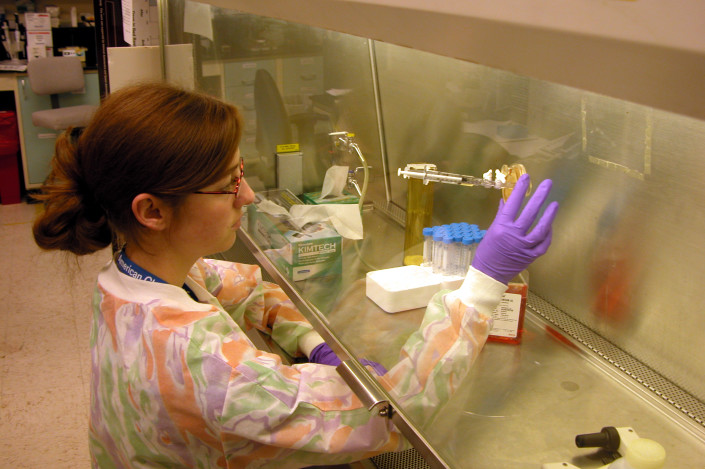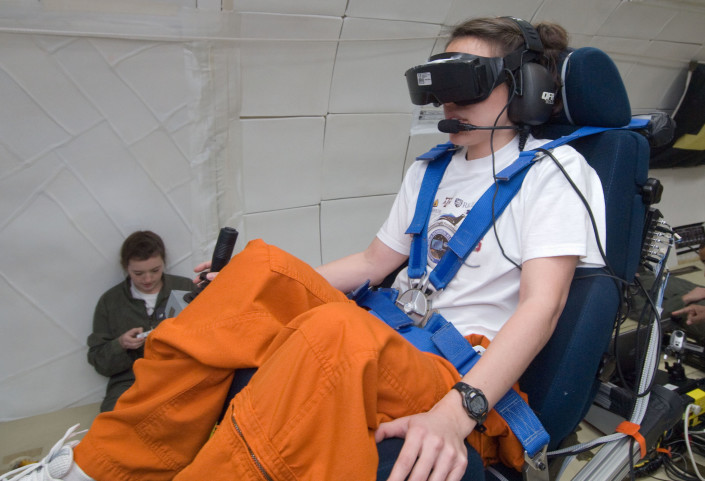Summer Apprenticeship Program
NSBRI’s Summer Apprenticeship Program provides the opportunity for undergraduate, graduate, veterinary or medical students from across the country to join ongoing project activities and gain hands-on experience in space biomedical research at NASA’s Johnson Space Center in Houston, Texas, Glenn Research Center in Cleveland, Ohio, or Ames Research Center in Moffett Field, California. The 2016 Summer Apprenticeship Program begins on May 31 and ends on August 12. Applicants must be available to perform scientific research and attend seminars during these dates. Read More

Saint Louis University’s Abigail Young analyzes cell samples for a project to determine the effects of microgravity and radiation on the reactivation of the Epstein-Barr virus in the human body.
Mentored Research Program
NSBRI’s Mentored Research Program in Space Life Sciences is conducted at both Texas A&M University and Massachusetts Institute of Technology (MIT) through the Harvard-MIT Division of Health Sciences and Technology. Students in these programs work toward a Ph.D. that focuses on space life sciences.
The program is developing modules to strengthen current graduate curricula at these two institutions enabling students to experience advanced courses in biomedical science and engineering, specifically as these fields relate to the space program.
Each year, young scientists from the NSBRI-sponsored Mentored Research Program participate in a 10-week summer enrichment program in Houston. The program includes a week of space life sciences lectures followed by a nine-week assignment in a NASA Johnson Space Center laboratory. Read More.

Kara Beaton, seated in the experiment’s tilted chair, performed the virtual navigation task with and without the help of the tactile cueing of her orientation. Kate Montgomery, seated on floor, operates the experiment. Photo by NASA.
NASA Opportunities
NASA sponsors educational programs targeted to a variety of education levels. NASA programs related to space life science. Read More.





